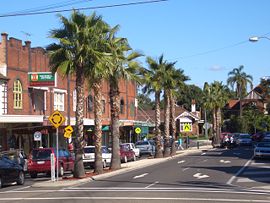A common challenge faced by local business is managing the threat of a ‘similar store’ opening ‘just down the road’. Such challenges can become even more unnerving when there are real life examples all around us – for example, I’ve seen 3 suburban hardware stores go out of business following the opening of a nearby Bunnings store, and on a personal level I’ve experienced my Dad lose quite a bit when his business had to fold.
Such a challenge became a topic of a conversation on Wednesday morning when I was presenting at a local breakfast business meeting. The person who initiated the discussion was a participant who was sharing her trepidation of a shop similar to her own opening up around the corner.
So imagine you are a small ‘retail-based’ business and a competitor opens next door. Would you make any of the following choices:
- Go hard with your marketing and hustling.
- Pack up shop and set up in some remote area that is not that attractive to other potential competitors (and quite possibly unattractive to potential customers).
- Find another income source whether this be setting up another type of business or perhaps becoming an employee (as some people do when they are put out of business by a Franchise-based operation and then become an employee of that same Franchise).
- Find your niche and get known for this. By niche I am referring to that particular speciality that you provide and that is hard for others to replicate.Matt Church (who founded the Thought Leaders Business School along with Peter Cook) promotes the importance of niche and the equally important element of being known for this niche – there’s no point being really good if no one knows about! Using the above Bunnings example, the 2 nearby suburban hardware stores which have survived are specialist tool shops – they are known for this specialty with tradies coming from all around Sydney.
One way to think about this element of niche is through the experience that is being provided to customers. During the discussion on Wednesday morning I used an imaginary scenario in which attendees were operating a Hair Saloon and were dealing with the opening of a nearby 2nd Salon.
To prompt discussion I asked participants to focus in on a possible niche asking questions such as the following:
- Do customers want to experience a sense of indulgence? If so then how else can you enrich this sense of experience? A Saloon with aroma’s, soft seats, appropriate lighting?
- Do they want to feel glamorous? If so then how about a Saloon with visually striking pictures? Strong lighting with good looking people and mirrors in abundance.
- Is it for a quick and hasty cut, in which case look in any $10 barber shop and you’ll get an idea of what’s provided.
- Do they just enjoy the social experience and a chat? Well make sure the staff are friendly and have strong conversation skills.
- Or it could be a rebellious funky type motivation, which you’d reflect with appropriate decor.
The international marketing guru Seth Godin also highlighted the importance of niche when he made the statement that the key to success is to find a way to stand out — what he called the need to be the purple cow in a field of sameness.
Find your niche
So what is the unique experience you are seeking to provide and be known for? What is the position that you will hold such that a business opening just down the road becomes almost irrelevant?
With such a position the catchment of your customers will extend far beyond the local area and beyond those who might be ‘just passing by’. Your customers will be commuting past that ‘competitor just down the road’ whilst on their way to your shop.
